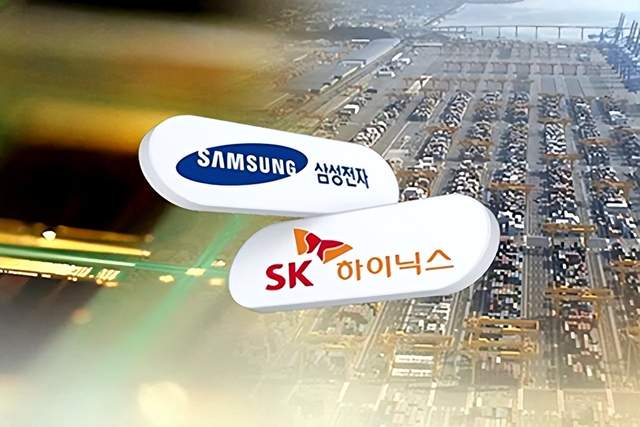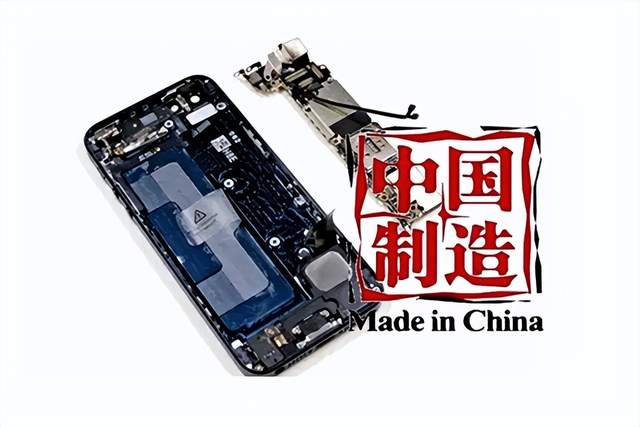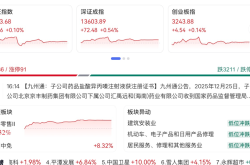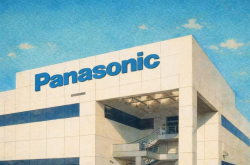The price rise of memory chips has peaked, Chinese mobile phones are no longer buying, and Korean chips may have internal strife, with speculation falling through
![]() 09/23 2024
09/23 2024
![]() 620
620
Since 2023, the global memory chip price has suddenly soared, with a surge of more than 40% in the first half of this year, making Korean memory chip companies earn a fortune. However, with the weakening demand for memory chips, the two major Korean memory chip giants have begun to quarrel internally, and the price of global memory chips is expected to fall again.

This round of memory chip price increase is driven by AI. Due to the surge in demand for AI chips in the AI industry, the demand for HBM memory chips has soared. SK Hynix and Samsung, the two major Korean memory chip companies, are the top two HBM chip companies in the world, earning a fortune as a result. Samsung earlier announced a 14-fold increase in profits.
HBM memory chips and AI chips are sold in a bundled mode. To improve overall performance, NVIDIA's AI chips and HBM chips are packaged together, which can reduce the time for AI chips to read stored data and improve overall performance. However, there seems to be signs that this round of AI chip boom is coming to an end, and many NVIDIA executives have sold their shares in droves, with founder Jen-Hsun Huang having cashed out hundreds of millions of dollars, raising doubts about how long the AI chip boom will last.
The internal strife between Korean chips lies in the fact that SK Hynix is the leader in this round of HBM chips, while Samsung is the global leader in memory chips. Samsung, unwilling to watch SK Hynix take the lion's share, has significantly increased its HBM chip production capacity over the past year. With the commissioning of its expanded HBM chip production lines, Samsung has begun to significantly increase its HBM chip production. Morgan Stanley estimates that Korea's HBM memory chip production capacity is already 60% higher than market demand, which is bound to lead to a price war and accelerate the price decline of HBM chips.
Samsung's dominance in the global memory chip market is attributed to its countercyclical expansion model. Relying on funds provided by other advantageous businesses such as televisions and mobile phones, Samsung has expanded aggressively during downturns in the memory chip market, intensifying price competition and driving many competitors out of the market, as was the case with Japan's Elpida. Now, Samsung is likely to use the same tactic against its domestic rival SK Hynix.

The main export destination for Korean memory chips is the Chinese market, which accounts for about 60% of Korean memory chip exports. Earlier, it was rumored that Chinese AI companies were concerned about the United States blocking Korean exports of HBM chips to China, leading to a surge in purchases, which will result in a decline in demand for HBM chips from Chinese AI companies in the coming year, with a significant portion being supported by inventory.
As for the larger number of general-purpose memory chips, Chinese mobile phones have slowed down after significantly increasing storage capacity over the past few years, with some even downgrading their memory to 4GB again, resulting in a decline in the purchase of memory chips by Chinese mobile phones. Chinese mobile phones account for more than half of the global mobile phone market, and their reduced purchases of memory chips have had a significant impact on Korea.
The price increase of memory chips has also affected demand. For highly competitive industries such as PCs and mobile phones, costs have risen while prices have been difficult to raise. Even Apple, the leader in the mobile phone industry, has been hesitant to raise prices in recent years. This year's iPhone 16 has increased its specifications without raising its price, even though the cost has risen due to the use of more advanced N3E technology in the A18 processor and an additional 2GB of memory. If Chinese mobile phones raise prices, they risk losing market share to Apple, leading to a decline in demand for memory chips.
These factors have led American analytical agencies to believe that Korea may have an oversupply of memory chips. In fact, there are suspicions that this round of memory chip price increases was speculative. Global sales of PCs and mobile phones have actually been much lower in recent years than in 2016, with PC sales declining for several consecutive years and mobile phone sales falling from 1.5 billion units in 2016 to around 1.2 billion units today. With declining demand for consumer electronics and rapid advancements in memory chip technology, prices should have fallen. However, market-dominating companies like Samsung, SK Hynix, and Micron have significantly raised prices, despite having a history of collusion to raise prices and being punished by the United States.

This round of memory chip price increases has made Korean chip companies earn a fortune, with Samsung and SK Hynix doubling their revenues from the Chinese market, at a significant cost to Chinese manufacturing. However, such collusive price increases are difficult to sustain, and the downward cycle of memory chips is once again upon us. This can reduce the cost of Chinese manufacturing and enhance its competitiveness, which is undoubtedly good news for Chinese manufacturing.







